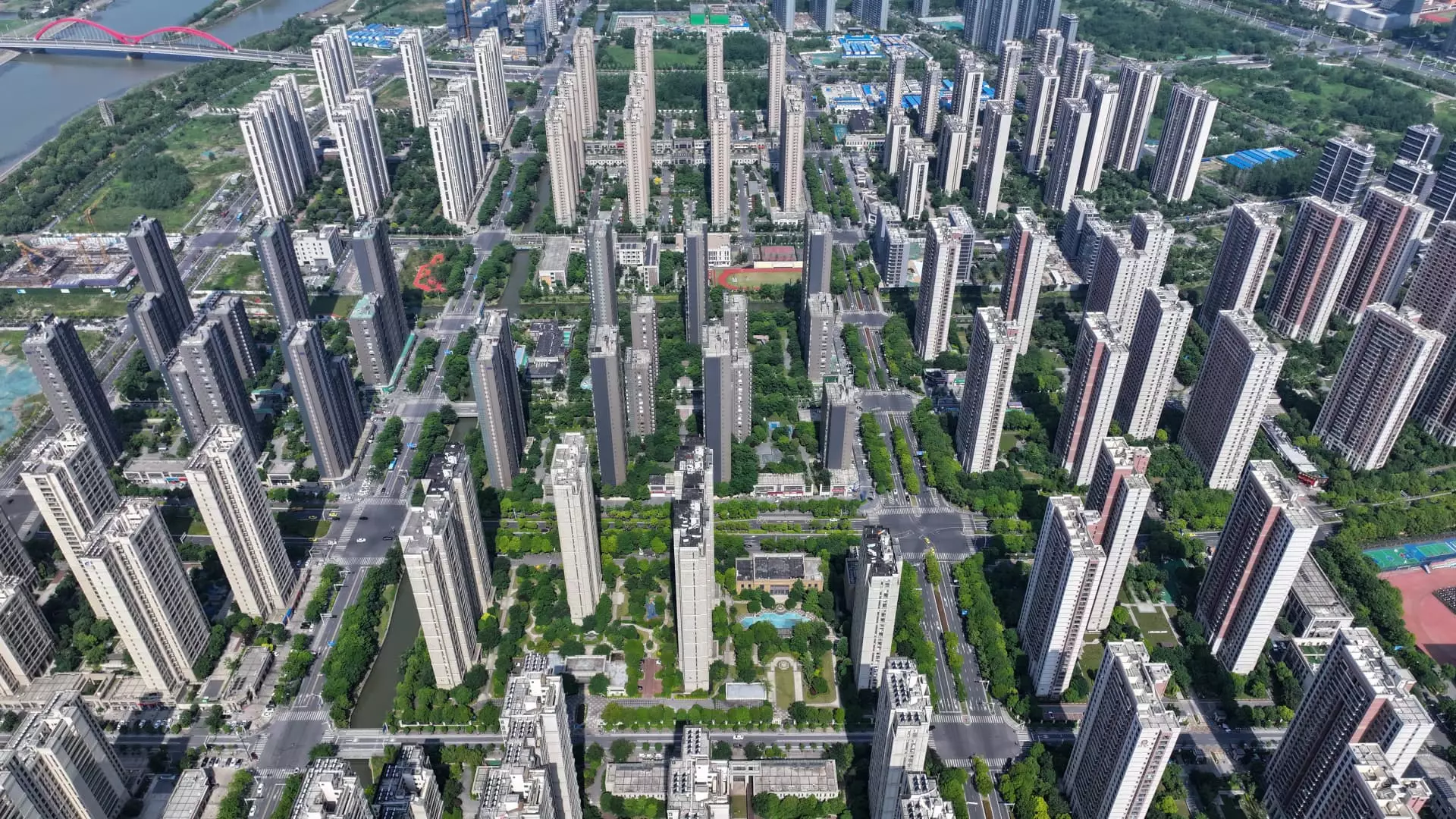Recent market trends indicate a significant rebound in Hong Kong-listed Chinese property stocks, marking their highest levels in over a year. This upsurge is largely attributed to a broader stimulus rally across China’s financial landscape. The real estate sector has emerged as a notable beneficiary, with Longfor Group Holdings leading the charge, boasting an impressive 25% increase in its share value. Other prominent real estate developers have also reported substantial gains, notably Shimao Group and Kaisa Group, whose shares surged by 87% and 40.48%, respectively.
This bullish trend is observed not only in individual stocks but also reflected in the Hang Seng Index, which rose by 6%, and the Hang Seng Mainland Properties Index, which saw an impressive jump of over 14%. These figures offer a glimmer of hope amidst a sector that has struggled significantly over the past few years.
Government Intervention and Policy Adjustments
The recent uptick in property stock values coincides with new measures introduced by major Chinese cities aimed at boosting homebuyer confidence and stimulating market activity. For instance, Guangzhou’s local government has lifted all restrictions on home purchases, while Shanghai has reduced the required tax-paying period, making it easier for potential buyers to enter the market. Shenzhen has also made strides by easing purchasing restrictions, allowing buyers to acquire additional apartments in specific districts.
Such governmental interventions are crucial, especially considering the challenges that the real estate market has faced since Beijing implemented a stringent crackdown on excessive debt in 2020. Historically, the real estate sector accounted for more than 25% of China’s GDP, but the ongoing downturn highlights the delicate state of this vital industry.
Challenges Ahead: Can the Rally Sustain Momentum?
Despite these positive developments, analysts remain cautious regarding the sustainability of this market rally. Morgan Stanley has articulated concerns that the persistent issues within the property sector will create a considerable shortfall in demand, undermining growth projections. The investment bank’s Asia-Pacific economists have underscored the complexities involved in reviving the property market, asserting that while stabilization efforts may show initial promise, achieving genuine growth and restoring market prices will be a formidable challenge.
The skepticism stems from previous governmental initiatives that failed to generate a substantial turnaround in the real estate market, despite heightened support to alleviate financial pressures on consumers and developers alike. A resilient recovery will likely necessitate more than surface-level measures; it could require deeper structural changes and the restoration of buyer confidence to produce lasting effects.
While the recent surge in Chinese property stocks presents an encouraging narrative, it is important for investors and market participants to remain vigilant and critically assess the ongoing situation. The intersection of government policy adjustments and market dynamics will be crucial in determining whether this rally represents a genuine resurgence or merely a temporary upswing. As China navigates these tumultuous waters, the future of its real estate sector remains shrouded in uncertainty, making it essential to monitor developments closely.

